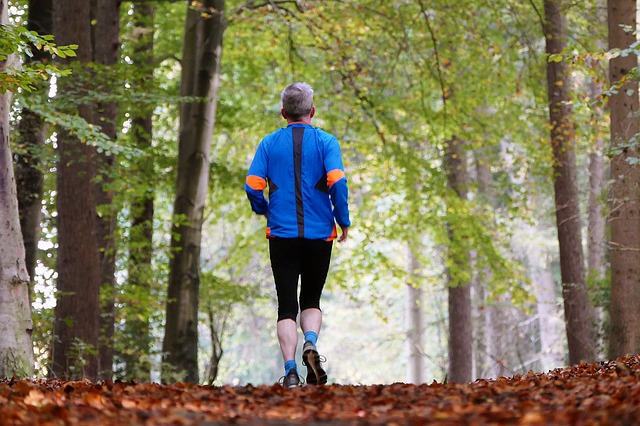Why Will Exercise Aggravate Long-COVID Symptoms?
- Normal Liver Cells Found to Promote Cancer Metastasis to the Liver
- Nearly 80% Complete Remission: Breakthrough in ADC Anti-Tumor Treatment
- Vaccination Against Common Diseases May Prevent Dementia!
- New Alzheimer’s Disease (AD) Diagnosis and Staging Criteria
- Breakthrough in Alzheimer’s Disease: New Nasal Spray Halts Cognitive Decline by Targeting Toxic Protein
- Can the Tap Water at the Paris Olympics be Drunk Directly?
Why Will Exercise Aggravate Long-COVID Symptoms? Researchers May Have Uncovered the Reason
- Should China be held legally responsible for the US’s $18 trillion COVID losses?
- CT Radiation Exposure Linked to Blood Cancer in Children and Adolescents
- FDA has mandated a top-level black box warning for all marketed CAR-T therapies
- Can people with high blood pressure eat peanuts?
- What is the difference between dopamine and dobutamine?
- How long can the patient live after heart stent surgery?
Why Will Exercise Aggravate Long-COVID Symptoms? Researchers May Have Uncovered the Reason
One of the most common symptoms of Long-COVID is a worsening of conditions with intense exercise, not only diminishing patients’ physical capabilities but also often leading to a broader range of symptoms in the days following physical activity. Researchers term this phenomenon “Post-Exertional Malaise” (PEM), a somewhat peculiar occurrence.
In most rehabilitation treatments, exercise is considered beneficial. When patients face difficulties during exercise, there are usually clear physiological reasons, such as poor cardiorespiratory function or a general weakening of the body due to prolonged illness.
However, in many Long-COVID cases, there are no apparent signs explaining these exercise limitations. Many patients undergo a series of routine checks only to be told that they seem completely fine. Nevertheless, recent studies are beginning to unveil the mysterious aspects behind Long-COVID PEM. While these study results do not immediately point to solutions, they certainly affirm that exercise intolerance related to Long-COVID has a physiological basis.
The traditional test for assessing patients’ physical functional capacity is called Cardiopulmonary Exercise Testing (CPET). Doctors monitor heart rate, blood oxygen saturation, and electrocardiogram data while patients ride a stationary bicycle.
For many long-term COVID patients, CPET results appear normal despite noticeable limitations, such as shortness of breath during exercise. Although these patients experience exercise-related discomfort, their blood oxygen levels and heart function are typically normal.
A new study from Yale University recruited a group of long-term chronic obstructive pulmonary disease (COPD) patients for a novel CPET experiment called iCPET (invasive Cardiopulmonary Exercise Testing).
Unlike standard CPET, patients undergoing this test had two pressure-sensitive catheters inserted into their arteries, allowing for a more in-depth understanding of the impact of exercise on muscles and blood vessels.
The shocking test results revealed that there were no apparent issues with cardiorespiratory function, but there were significant abnormalities in how the body’s tissues absorbed oxygen. This dysfunction is referred to as impaired systemic oxygen extraction peak (pEO2).
Lead author of the study, Peter Kuhn, explained, “We found that despite the heart pumping oxygenated blood adequately to the lungs, the tissues’ ability to extract oxygen was impaired in patients experiencing exercise intolerance symptoms post-COVID.”
However, the reasons for this impairment are currently speculative, and researchers have proposed several possible explanations for this unusual phenomenon.
The authors speculated in the study, “Impaired pEO2 may be due to inadequate vasoconstriction in non-exercising vascular beds or insufficient diffusion from capillaries to mitochondria in the muscles.”
A recent study published in the journal Nature Communications by a group of scientists in Amsterdam provides intriguing clues, revealing a connection to mitochondria, the tiny powerhouses that provide energy for individual cells.
This unique experiment involved a group of long-term COPD patients and a healthy control group. Volunteers underwent an intense cycling test, providing blood and muscle tissue samples a week before and a day after the test.
Co-author of the study, Rob Wüst, stated that Long-COVID patients exhibited metabolic disturbances and severe muscle damage after intense exercise. Importantly, the results indicated that vigorous exercise could trigger dysfunction in muscle cell mitochondria, possibly explaining why Long-COVID patients feel worse the day after exercise.
“We found various abnormalities in the patients’ muscle tissue,” explained Wüst. “At the cellular level, we observed reduced function of the muscle mitochondria, the energy factories of the cells, leading to a decrease in energy production.”
While these studies confirm the physiological basis for exercise intolerance and post-exertional malaise associated with long-term COPD, many mysteries remain. Mitochondrial dysfunction has been suggested as a potential explanation for certain Long-COVID symptoms, but how SARS-CoV-2 infection leads to this remains elusive.
The persistent presence of the virus has been considered an explanation, but Wüst and colleagues found similar levels of SARS-CoV-2 fragments in the skeletal muscles of Long-COVID patients and the control group, somewhat ruling out this hypothesis. The biggest puzzle is how the virus alters the mitochondrial function of muscle cells.
“I personally think that mitochondrial dysfunction is not due to other problems,” Wüst explained. “The reason is that people always think exercise is beneficial for mitochondrial function, and [Long-COVID] patients are not like that. Clearly, muscle damage and the subsequent infiltration of immune cells can reduce mitochondrial function, or there is an unknown factor X causing mitochondrial dysfunction.”
While the treatment for exercise intolerance in Long-COVID may still be distant, these findings offer some reassurance to patients who often feel their symptoms are self-perceived when standard test results appear normal. Co-author of the Amsterdam study, Brent Appelman, advises caution for those with long-term COVID, urging them not to exceed their physical limits and suggesting low-impact activities that do not worsen symptoms, such as walking or using an electric bike. It is becoming increasingly clear that overexertion can cause harm, and we are beginning to understand the reasons behind it.

Why Will Exercise Aggravate Long-COVID Symptoms? Researchers May Have Uncovered the Reason
(source:internet, reference only)
Disclaimer of medicaltrend.org
Important Note: The information provided is for informational purposes only and should not be considered as medical advice.



